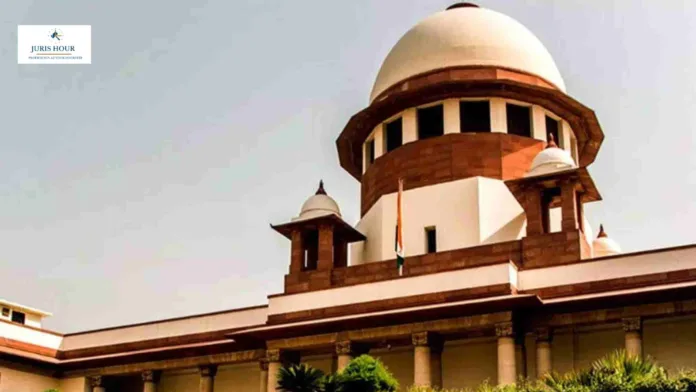The Supreme Court has upheld the bar on input tax credit for exempt sales under Uttar Pradesh Value Added Tax Act, 2008 (UPVAT Act).
The bench of Justice Pankaj Mithal and S.V.N Bhatti has observed that the scheme of availing input tax credit is determined by section 13 of the VAT Act. Section 13(1) provides for allowing credit of an amount as input tax credit to the extent provided by or under the relevant clause to which the applicable condition is attracted. If the purchased goods are resold in the course of exporting the goods out of India, then the full amount of input tax credit can be claimed.
The bench stated that Section 13(7) outlines the circumstances under which such a benefit cannot be allowed. Section 13(7) also sets out that no facility for input tax credit shall be allowed to a dealer with respect to the purchase of any goods where the sale of such goods by the dealer is exempt from tax under Section 7(c) of the VAT Act.
The appellant is a registered dealer under the Uttar Pradesh Value Added Tax Act, 2008. The subject matter of the appeal relates to the turnover returns filed by the dealer for the assessment year 2010-11. The dealer recorded sales against the issuance of Form-E to the manufacturer- exporter. The dealer claimed an input tax credit. The assessing officer, at the first instance, allowed input tax to the extent of Rs. 6,42,260/-. Subsequently, the assessing officer made under section 28 of the Act disallowed the claim of an input tax credit.
The assessing officer in the assessment order, passed under section 28 of the Act, put the dealer on notice to hold that the dealer is not entitled to input tax credit for the purchase tax paid by him on the sales turnover made in favour of the manufacturer-exporter. The dealer explained that the case of input tax claimed by the dealer falls within the scope of section 13(1) of the Act. Even though the subject turnover falls within the ambit of section 7(c) of the Act, the proviso or exception covered by section 13(7) of the Act is not attracted.
The assessing officer noted that the subject sales or the subject turnover made against Form-E was accepted by the department. The exemption from payment of tax shall not be levied and paid on the turnover of sales or purchase of such goods by such class of dealers as may be specified in the notification issued on this behalf. The notifications dated 24.02.2010 and 25.03.2010 covered the procedure for dealing with the turnover falling within section 7(c) of the Act.
Therefore, the input tax benefit is provided in accordance with the scheme outlined in section 13 of the Act. Section 13(7) is a proviso, and the said proviso stipulates that a transaction covered by section 7(c) of the Act is not entitled to input tax credit. Extending input tax credit in terms of section 13(1) of the Act would be contrary to sections 7(c) and 13(1) on the one hand and 13(7) of the Act on the other.
The petitioner contended that the denial of input tax credit is prima facie illegal and unsustainable. The notification under section 7(c) of the Act read in the context of policy would show that the notification has been issued to encourage manufacturer- exporters in the State of Uttar Pradesh. The exemption from tax to the manufacturer-exporter, if, on the one side, promotes trade and commerce, denial of input tax credit to the seller/dealer, on the other hand, would be counterproductive to the very policy of the State Government.
The department contended that the case of the dealer falls under section 7(c) read with the notifications dated 24.02.2010 and 25.03.2010. The dealer, by filing Form-E, recorded a turnover. The dealer, therefore, is disentitled to input tax credit by operation of section 13(7). It is pointed out that input tax credit is available strictly as per the expression. In the interpretation of taxing statutes, intent does not form the guiding principle. There is no ambiguity in preferring an interpretation that is favourable to the dealer. The expression is clear, and the findings, both in law and fact, recorded by the courts below, do not warrant interference under Article 136 of the Constitution of India.
The court held that the prohibition from allowing input tax credit is a statutory mandate, and the view taken by the orders impugned, in the facts and circumstances of this case, is available and correct. In the teeth of clear expression in section 13(7) of the Act, it is difficult to give effect to the intent or policy made known through notifications to grant input tax credit. The dealer availing section 7(c) of the Act knows the extent to which the input tax credit could be claimed. Hence, the Civil Appeal fails, and is accordingly dismissed.
Case Details
Case Title: Neha Enterprises Versus Commissioner, Commercial Tax, Lucknow, Uttar Pradesh
Case No.: Civil Appeal No. 6553 Of 2016
Date: April 9, 2025
Read More: Andhra Pradesh High Court Refused To Reinstate GST Registration Due To These Reasons

